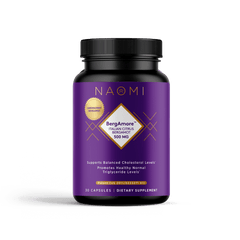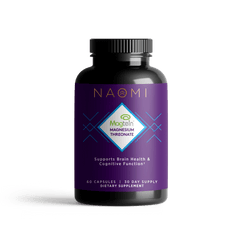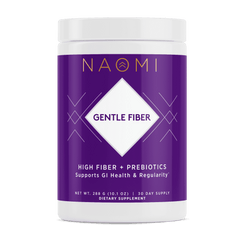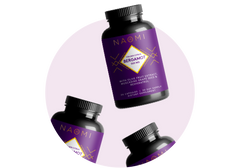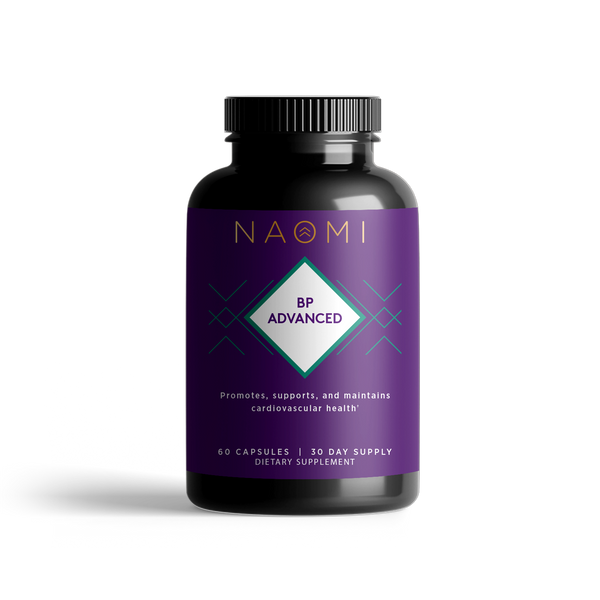What to Know About Overactive Bladder: Symptoms, Approaches, & Natural Remedies
When you have an overactive bladder, which can often trigger loss of bladder control (also known as urinary incontinence), you know how vulnerable it can leave you feeling. With little-to-no warning, you're suddenly scrambling to find a restroom or, even worse, clean clothes. But did you know there are all-natural remedies available to help control this issue without invasive surgery or other complicated procedures?
If you’re ready to learn more about how to calm an overactive bladder and manage this troublesome problem so you can feel more confident every day, you’ve landed in the right place. I’m going to share all about how you can fix an overactive bladder, including the best all-natural overactive bladder approach and ingredients and how these ingredients work together in my new product, OMI Bladder Control, which has been clinically shown to reduce both urinary frequency and urgency starting in just two weeks! So, keep reading to get this info and more.
What Is an Overactive Bladder?
Before we discuss the best natural remedies for urinary incontinence, let’s first review what an overactive bladder actually is. Having an overactive bladder simply means your bladder is active more often than necessary, causing bladder spasms. Basically, your bladder muscles contract more often than necessary (i.e., when it isn’t full of fluid) and you experience both frequent urination and sudden urges to urinate—urges that can be hard to control and may result in accidents and interfere with daily life. It’s a quite common concern, affecting more than 30 million Americans, and typically occurs in those aged 65 and over.
Symptoms of an Overactive Bladder
So, how do you know if you have an overactive bladder or if you’ve simply consumed too much fluid? Some of the main symptoms of an overactive bladder include experiencing the following:
- Urgency, or a sudden need to urinate
- Frequency, or the need to urinate on a regular basis—more frequently than your normal patterns.
- Nocturia, or overactive bladder at night—usually resulting in the need to urinate more than once in an eight-hour period.
- Incontinence, or the involuntary loss of urine.
Causes of an Overactive Bladder
So, what is the main cause of overactive bladder? The truth is that a variety of overactive bladder causes, including but not limited to:
- Some medical concerns, such as unhealty blood sugar levels, poor cardiovascular health, and more
- Health states that impact the bladder, such as hormonal fluctuations, prostate problems, chronic constipation, or tumors or stones in the bladder or kidneys
- Certain dietary factors (alcohol, sugar, and caffeine) that act as diuretics
- Urinary tract issues
Conventional Approaches to Overactive Bladder
While an overactive bladder doesn’t just remedy itself, it may be easily helped—depending on the cause. And the cause also determines the best approach for relief. For example, if you’re experiencing urinary urgency due to a urinary tract issue, you will need to visit your doctor for the proper diagnosis and solution. And if your overactive bladder is due to other causes, such as abdominal trauma related to childbirth or hormonal changes, your doctor may recommend more invasive or long-lasting plans that come with some discomfort or side effects.
There are approaches such as catheterization and bladder injections, both of which are extremely uncomfortable. Additionally, other doctor-recommended options are available, though they come with some undesirable side effects, such as constipation, dry eyes, and even dry mouth—the latter of which will only cause you to drink more, ultimately worsening your overactive bladder problem to begin with! That’s why, depending on the cause of your urinary incontinence and bladder control concerns, I recommend discussing an all-natural plan with your doctor first.
Natural Approaches for Overactive Bladder
While they aren’t often discussed, there are overactive bladder home remedies you can implement. For example, if your overactive bladder is due to stress, research has shown that maintaining a healthy weight is an effective option for relief. I recommend following a high-fiber keto diet to make sure you’re getting plenty of nutritious, stress-reducing foods that also support healthy weight management. Additionally, avoiding foods and beverages high in caffeine, alcohol, sugar, and chemicals is highly effective—all of which is part of a healthy keto diet!
Meanwhile, research has shown that engaging in kegel exercises, using acupuncture, and even taking some supplements can be highly effective at managing an overactive bladder. Some of the most popular supplements include gosha-jinki-gan and magnesium for overactive bladder. But there are actually three herbs that have been shown to be highly effective at supporting bladder health, including providing relief from overactive bladder. Let’s take a closer look at these herbs and how they work.
Supplementing for Improved Bladder Control
If you’re wondering what is the best natural supplement for bladder control, I recommend OMI Bladder Control. Why is this the best supplement for frequent urination? It contains three complementary ingredients that work in different ways to support healthy urinary function and fight overactive bladder: lindera (Lindera aggregata), horsetail (Equisetum arvense), and three-leaf caper (Crataeva nurvala).
Simply put, the lindera is known to help calm the nerve endings in your bladder while the horsetail supports the connective tissue known to support the bladder and pelvic floor. Finally, the three-leaf caper supports the strength and tone of your bladder muscles. Amazingly, this combination has been shown in clinical research to help reduce urinary frequency and urgency within two weeks—so much so that participants reported reducing their daytime bathroom visits by an incredible 22 percent!
If you’re looking for highly effective results, discuss combining this incredible supplement and the right dietary measures with your physician to take the steps toward supporting your bladder health and taking back control of your days and nights!

In Summary:
-
Overactive bladder is a common concern, affecting more than 30 million Americans and characterized by symptoms of frequent and urgent urination along with nocturia and incontinence.
-
It can be caused by a variety of factors, including dietary factors, urinary tract issues, and more.
-
Depending on the cause of your urinary incontinence and bladder control concerns, I recommend discussing an all-natural plan with your doctor to potentially avoid more invasive and uncomfortable procedures.
-
Research has shown that following a nutritious diet that supports healthy weight management is helpful in supporting bladder health, and including certain exercises and supplements rich in bladder-supporting herbs is highly effective in managing an overactive bladder.

